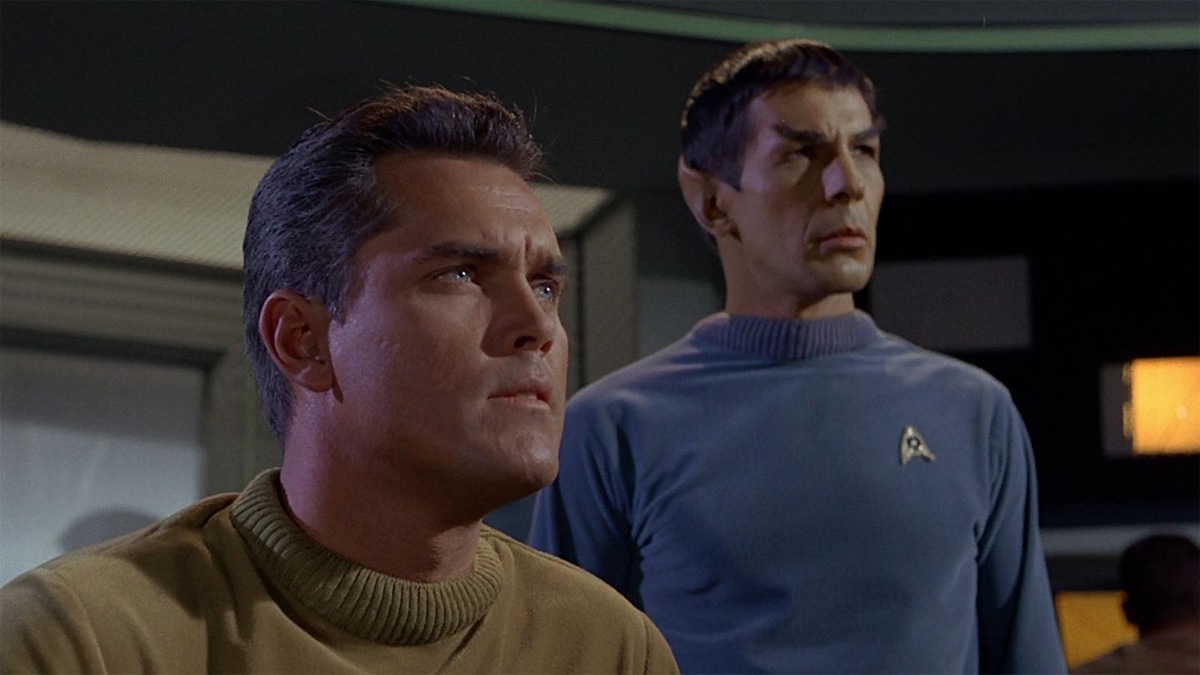Star Trek is one of those franchises whose origins have become so mythologised its practically a superhero origin story. Every fan knows the story of Gene Rodenberry, ex-US Air Force pilot-turned-beat cop-turned TV producer. We have all heard about his original “wagon train to the stars” pitch, and his idea that stories about alien worlds could be used to address real issues on our own planet.
But one name you might not associate with the earliest days of Star Trek is Lucille Ball. When director Brian Volk-Weiss set out to make The Center Seat: Celebrating 55 Years of Star Trek, one of the things he set out to change was that a lot of the history of Star Trek that had been covered by books and journalism had never been seen in a documentary, and Lucille Ball was the most egregious example of that.
“This has bothered me since high school, maybe even junior high,” Volk-Weiss tells us. “I did the whole opening episode on this topic, which is how can we keep talking about Gene Rodenberry as the father of Star Trek and never talk about Lucille Ball?”
Even if you’re not an aficionado of vintage sitcom, Lucille Ball is a familiar face and name. Gillian Anderson’s character Media paid memorable tribute to her in American Gods. The first episode of WandaVision was an homage to her wildly successful show, I Love Lucy. Aaron Sorkin’s latest film, Being the Ricardos, documents Ball and her husband, Desi Arnaz, during one week of the production of the show. That was recently joined by the Amy Poehler-directed documentary Lucy and Desi, which goes behind-the-scenes on the star and her marriage using audio recordings provided by the family.
Ball and Arnaz would eventually channel the success of their TV show into purchasing their own studio, forming the portmanteauing their names to form Desilu Productions, a name that will be familiar to anyone who watched Star Trek to the end of the credits.
When Ball and Arnaz eventually divorced in 1960, Ball took over the studio herself, becoming one of the most powerful women in Hollywood. That clout would become an essential part of the Star Trek story.
Ball had risen to prominence thanks to I Love Lucy pioneering the rerun on broadcast television, and so to make a name for her studio she wanted a show that could do equally successfully with rerun rights. Star Trek was to be that show.
“Gene’s great, I’ve nothing against Gene, but a script is nothing without money and she didn’t just finance the pilot once, she financed it twice,” Volk-Weiss says.
This is part of the story that is probably more familiar to Star Trek fans. Before there was the version of Star Trek we all know and love, there was the pilot episode, ‘The Cage’. It saw the Enterprise encounter the mysterious, alien Talosians.
Rodenberry’s first pick for the show’s heroic Captain Pike, William Shatner, was unavailable, and so instead Jeffrey Hunter was cast in the role. At the same time, Rodenberry’s choice for the ship’s doctor, DeForest Kelley, was turned down for being too sinister thanks to his villainous Western roles.
The resulting pilot, which had already been one of the most expensive ever filmed at over $600,000, received a lukewarm response, and the entire Star Trek franchise could have ended there. But Ball stepped in and financed another pilot.
“That would be considered insanely risky in 2022,” Volk-Weiss points out. “To do that before syndication existed was nuts.”
The second pilot, ‘Where No Man Has Gone Before’, saw Rodenberry finally manage to bring Shatner and Kelley onboard, as well as Nichole Nicholls as Uhura. It also saw the introduction of the “Galactic Barrier”, a concept the franchise is still getting storylines out of today.
Meanwhile, the original pilot has gone on to enjoy a second life, first as the two-part original series story ‘The Menagerie’, then with Captain Pike returning in Star Trek: Discovery and even meeting the Talosians again.
“The original pitch was ‘Lucille Ball turns the lights on, Rick Berman turns the lights off’,” Volk-Weiss says of his documentary series.
But with Star Trek: Strange New Worlds set to return this May, described by executive producer Henry Alonso Myers as “the longest pilot-to-series pickup in the history of television”, Lucille Ball’s impact on Star Trek may not be done yet.
Star Trek: The Center Seat is available to stream now on IMDb TV in the UK
